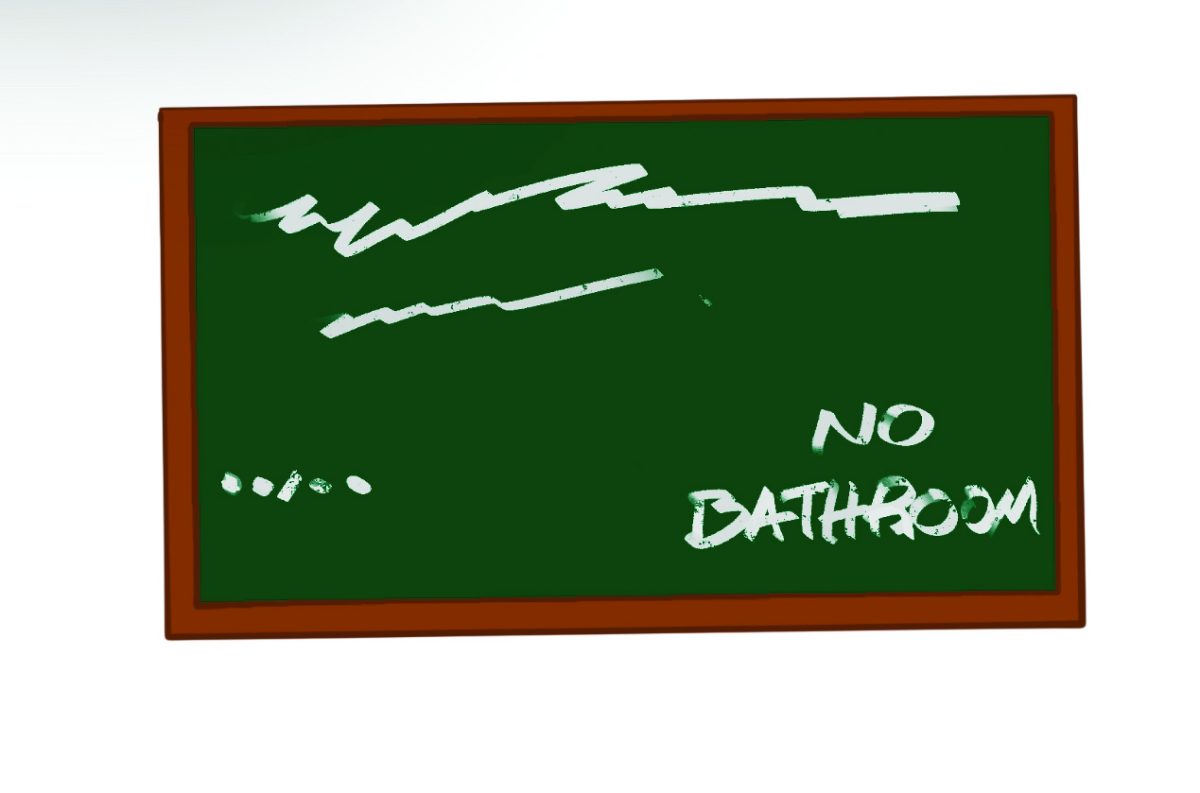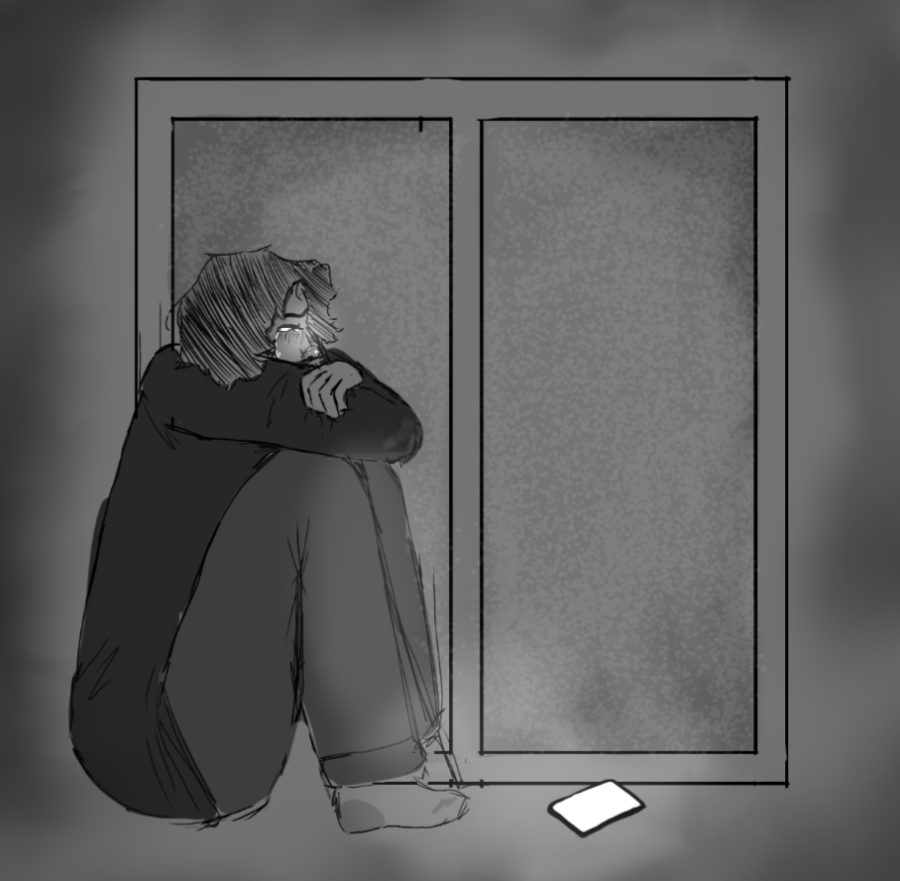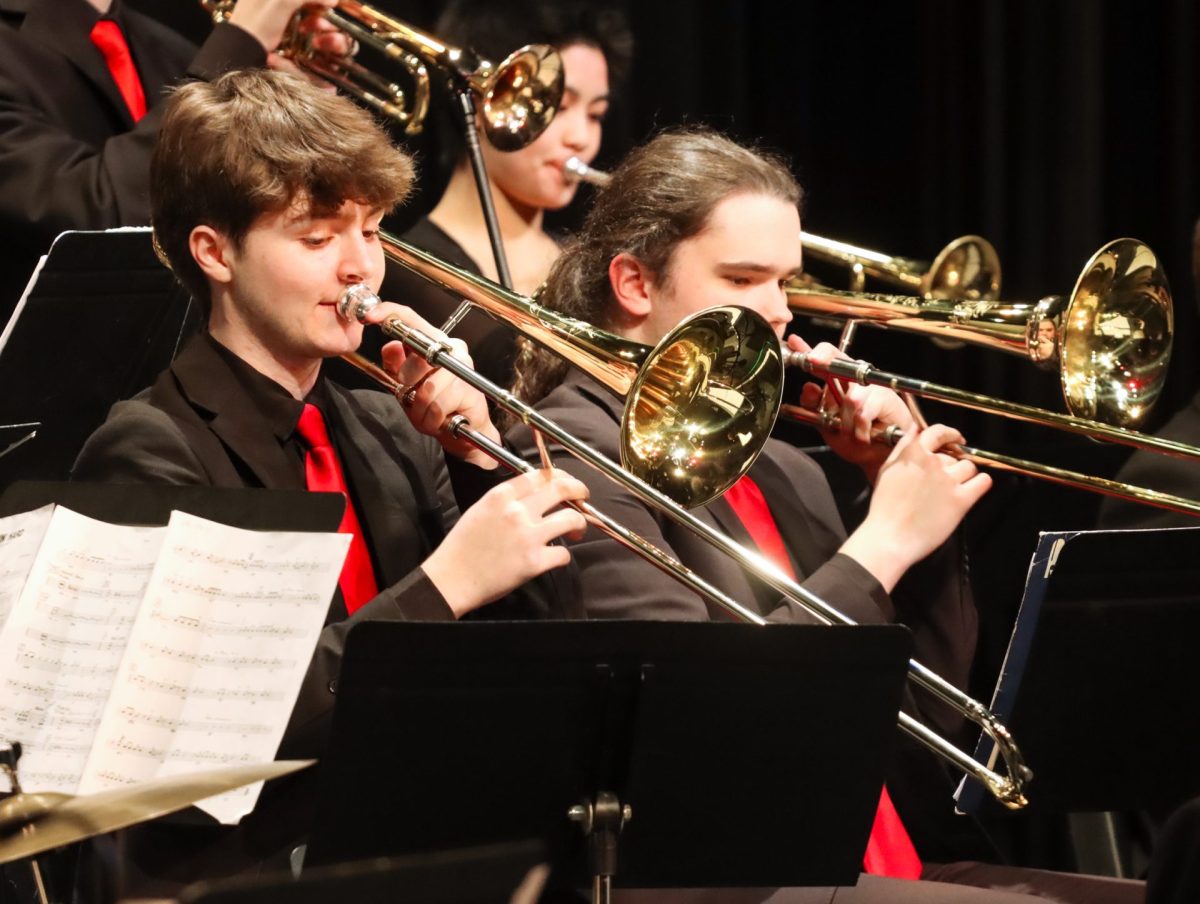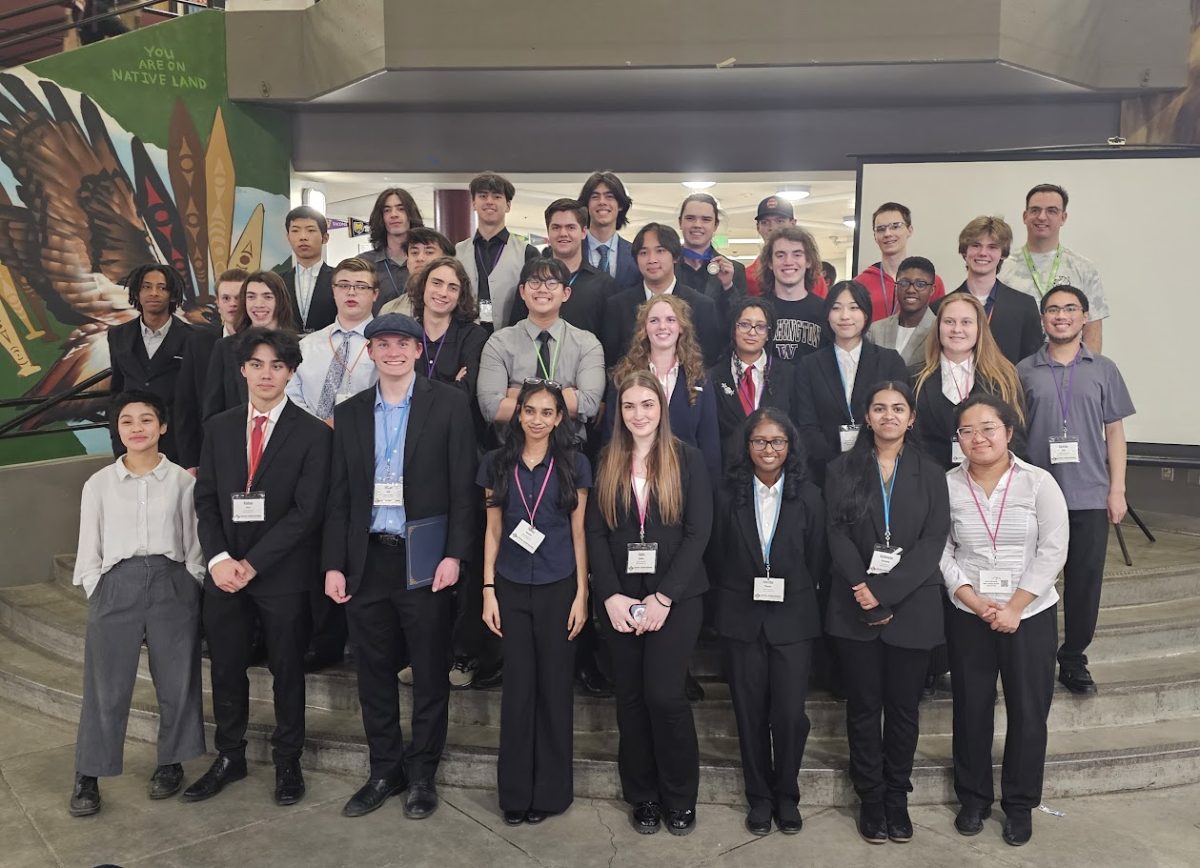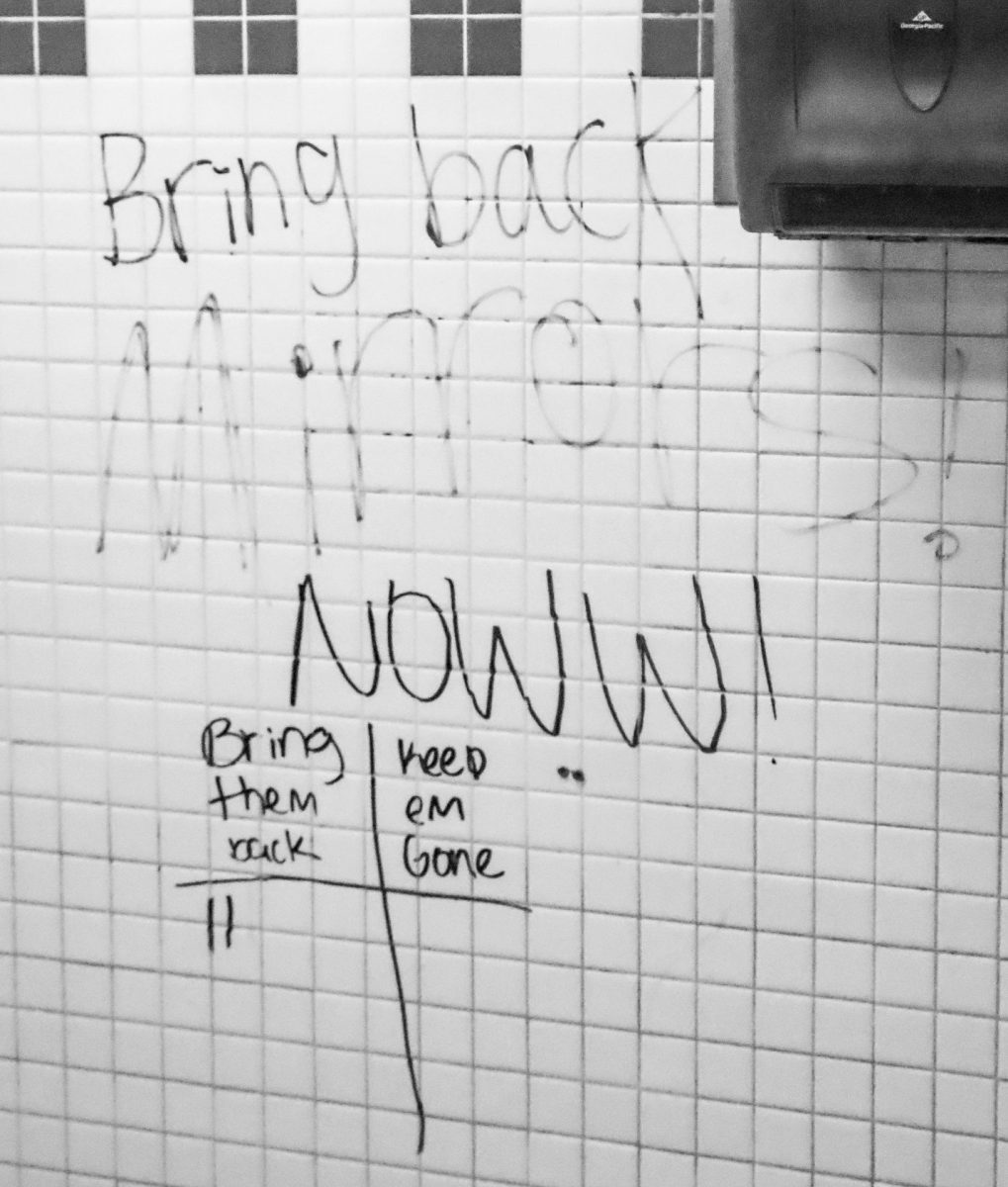Code of Washington (RCW) 28A.230.140, Mountlake Terrace High School students recite the Pledge of Allegiance.
Amongst the MTHS community there are many misconceptions about what is legally required for students to do regarding the Pledge. Some students object to reciting the pledge due to personal convictions, yet some teachers verbally chastise students who do not participate.
The RCW calls for, “Appropriate flag exercises to be held in each classroom at the beginning of the school day, and in every school at the opening of all school assemblies, at which exercises those pupils so desiring shall recite the [pledge of allegiance]… Students not reciting the pledge shall maintain a respectful silence.”
The code clearly indicates that reciting the Pledge is optional as long as students not participating are not disrupting other classmates who do participate. Legally, every student must be given the opportunity to recite the Pledge of Allegiance, but none can legally be forced to stand or say it, only to remain quiet and not disruptive.
Although this is the law, some MTHS teachers are confused or uninformed about what they should be requiring their students to do.
Formal punishment for non-participation goes against state law and federal, yet it still is present in the MTHS community. School districts who punish non-participating students may be sued under federal law because the right to no recite the Pledge falls under the First Amendment of the U.S. Constitution.
Science teacher Penny Lefavour requires her students to stand and be quiet during the Pledge of Allegiance. She said she does not think that requiring students to stand during the Pledge of Allegiance is forcing her personal beliefs on them, because in her view it’s the law and the common belief.
“It is a law for students to do the pledge,” Lefavour said.
“We can’t force students to stand,” Principal Greg Schwab said. “We can’t force our personal beliefs regarding the importance of the Pledge of Allegiance on our students.”
Lefavour finds the Pledge of Allegiance to be an important matter since her “family has fought, and is still fighting, for the rights and freedoms that people take for granted on a daily basis.”
World history teacher Marlynn Hartline asks her students to take off their hats when they say the Pledge of Allegiance, but she gives them the option of saying the Pledge or being quiet. Hartline encourages standing but she doesn’t require it.
“There are other important things in life too,” Schwab said.


